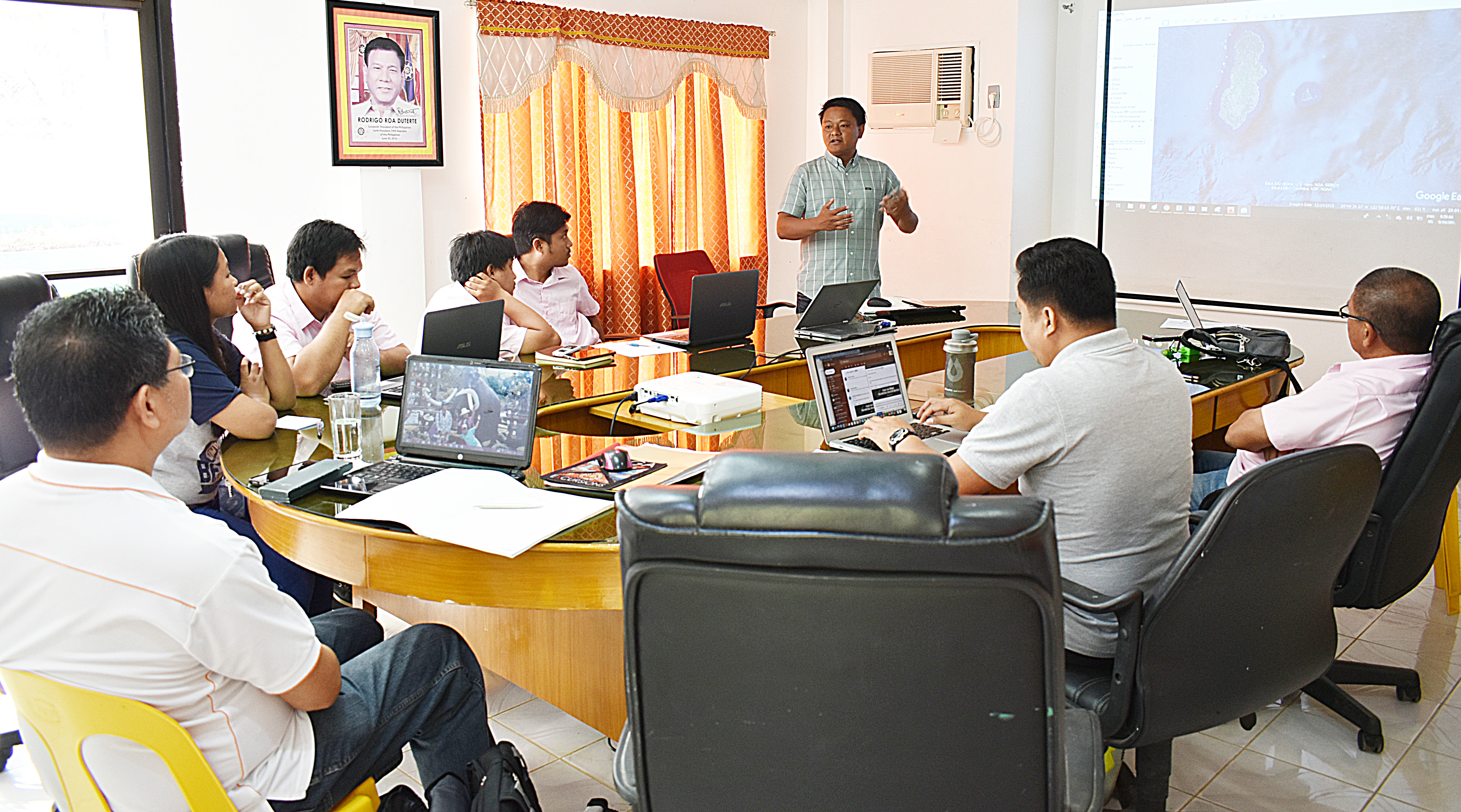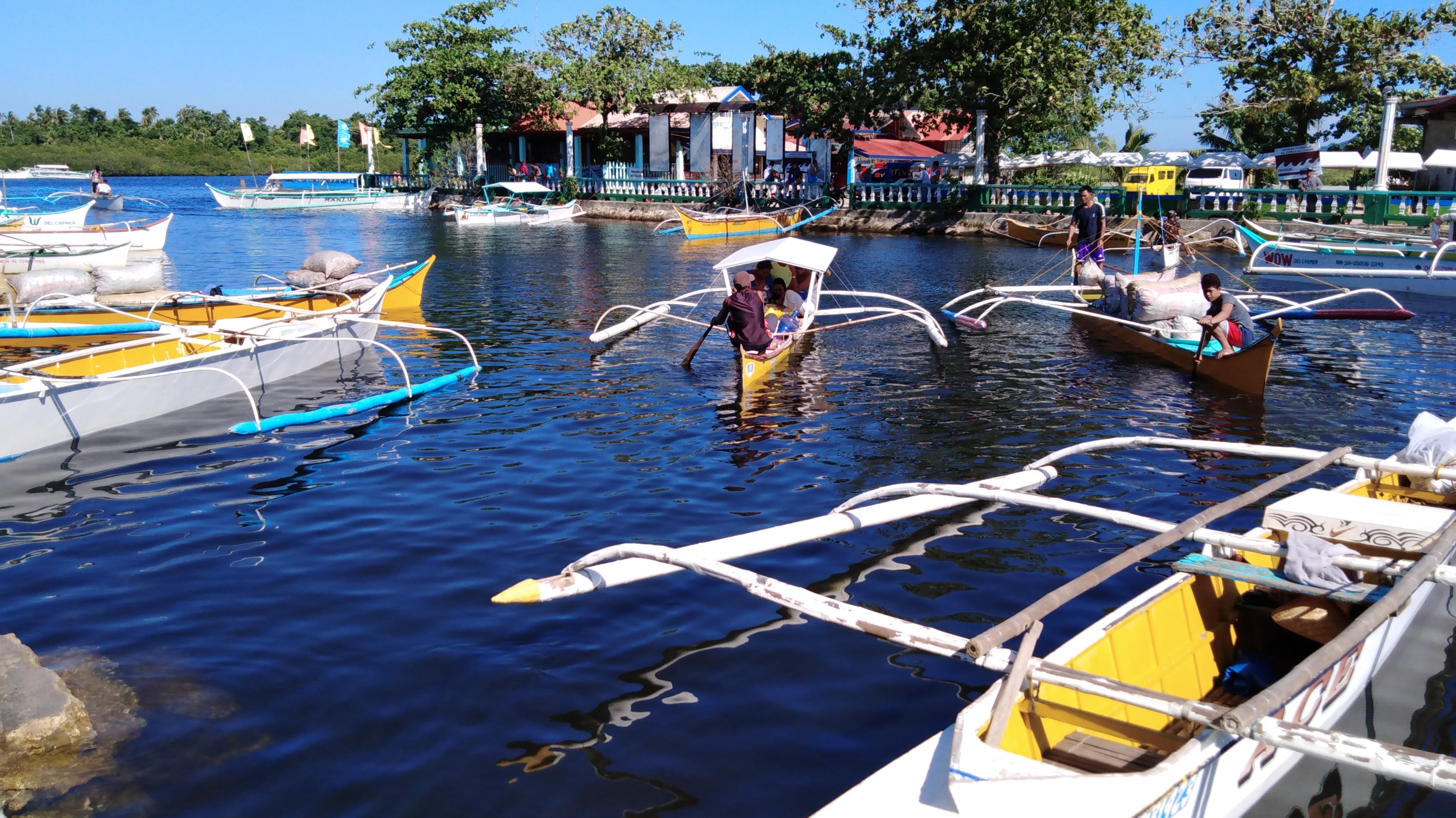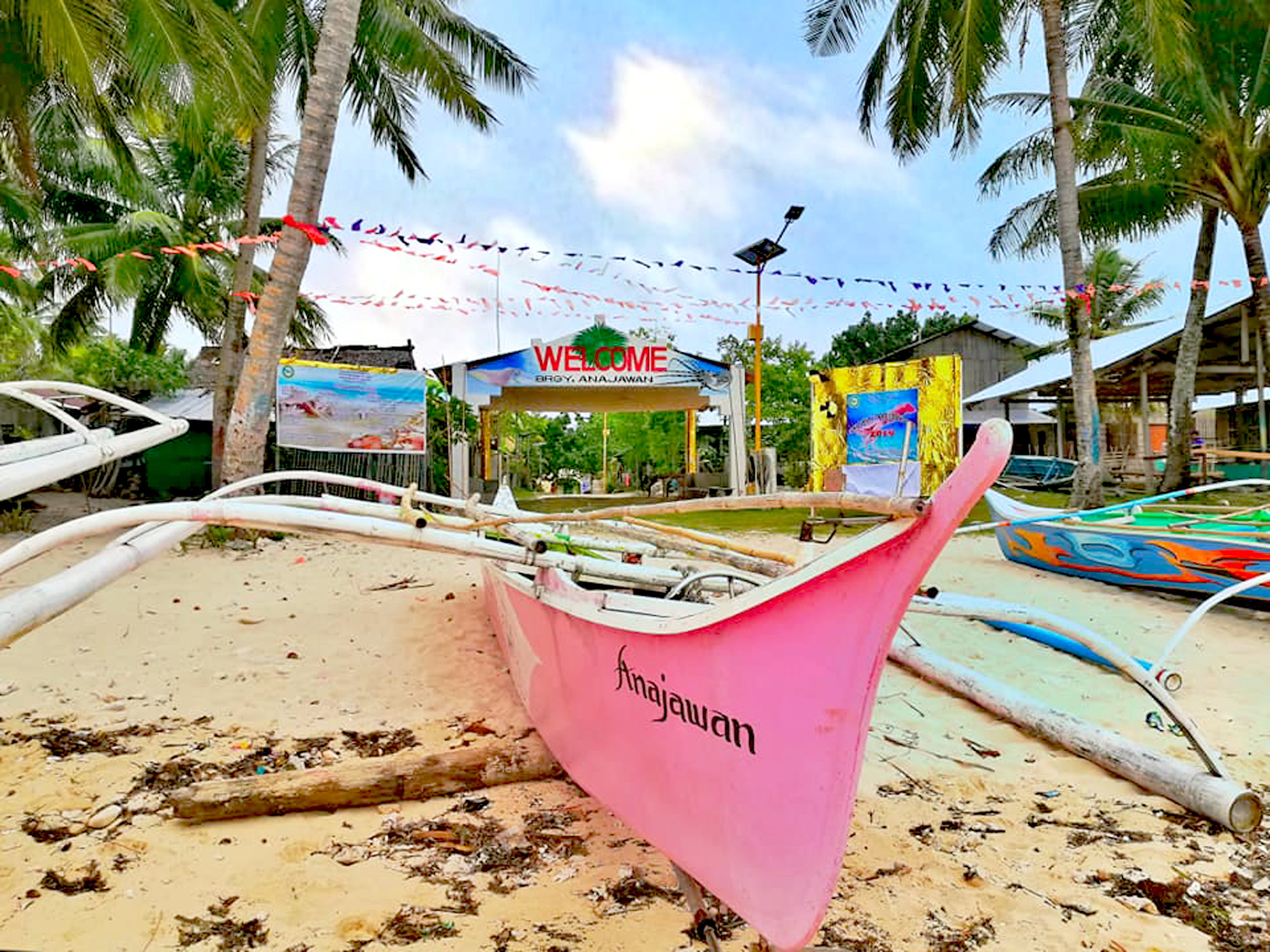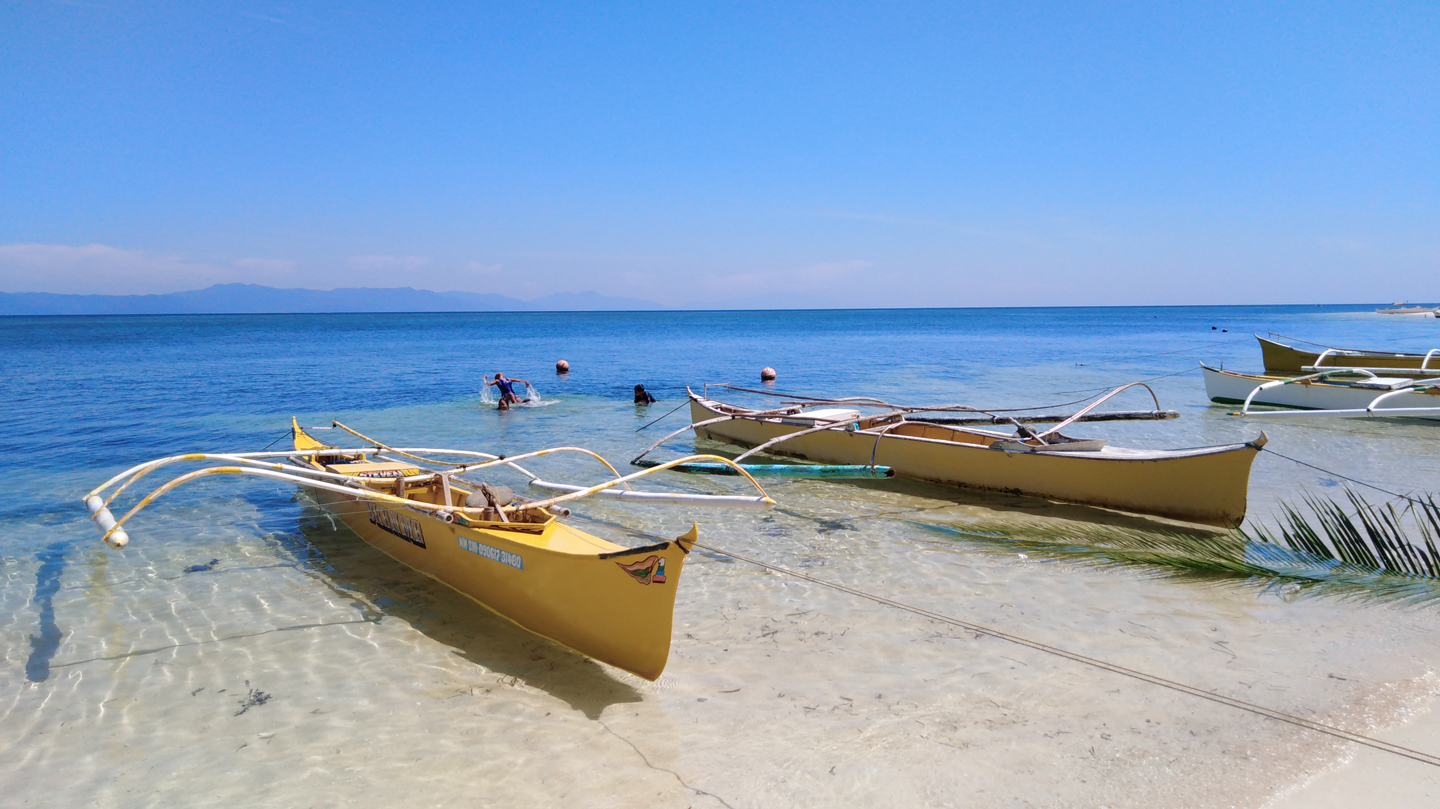WWF-Philippines’ SMILE Project addresses power and development needs of off-grid islands
November 2019

Engr. Donald Poncio of the Batanes Electric Cooperative (BATANELCO), Inc. (standing) presenting to T & D and Engineering staff of the Siargao Island Electric Cooperative (SIARELCO), Inc. an initial plan for the hybrid renewable energy plant to be constructed in the island barangays of Anajawan and Halian through the SMILE Project. Photograph (c) Bong Fabe / WWF-Philippines
SURIGAO CITY—Huddled around tables in a conference room, communities discussed their islands’ tourism and livelihood potentials and climate change hazards. In another conference room, these communities’ officials drew up plans how best to mitigate and adapt to the impacts of climate change that have been identified to affect their islands.
Meanwhile, in the board rooms of two electric cooperatives, engineers and the technical staff listened attentively to and helped a consultant mapped out the best ways to electrify the four island-communities that are the pilot areas of WWF-Philippines’ SMILE Project.
SMILE, short for Solar ComMunity-Based Island Tourism and Livelihood Energizer Platform, which is funded by the European Union (EU), aims to provide adequate 24/7 renewable energy services that is connected to a resilient and efficient power network to harness and develop the sustainable eco-tourism potentials as well as catalyzed environmentally-sound livelihood opportunities of four island-communities in the Province of Surigao del Norte and Dinagat Island Province.

These motorized outrigger bancas in Del Carmen, Surigao del Norte, will carry tourists to the municipality’s famous tourism sites and island-barangays for a fixed fee. Photograph (c) Bong Fabe / WWF-Philippines
With partners University of the Philippines Asian Institute of Tourism (UPAIT), Association of Isolated Electric Cooperatives (AIEC) thru its subsidiary, AIEC Missionary Green Energy Corporation (AIEC MGEC), Siargao Electric Cooperative (SIARELCO), and Dinagat Island Electric Cooperative (DIELCO) in cooperation with the local government units of the Province of Surigao del Norte and Dinagat Islands Province, SMILE Project will integrate electrification of off-grid communities with sustainable eco-tourism that is replicable to other off-grid islands all over the Philippines.
During the different workshops conducted with stakeholders, it was learned that tourism, especially island tourism, is both highly vulnerable to climate change impacts while at the same time contributing to it.
Scientific evidence shows that the concentration of the most abundant greenhouse gas, carbon dioxide (CO2), in the atmosphere has reached unprecedented levels. And tourism-associated greenhouse gas (GHG) emissions were estimated to be around 8% of global emissions in 2018.
The project sites — the island-barangays of Anajawan and Halian, located in the municipalities of General Luna and Del Carmen, respectively, both in Siargao, Surigao del Norte; and the island-communities of Cab-ilan and Kanihaan, in the municipalities of Dinagat and Libjo, respectively, both in the Province of Dinagat Islands — have huge eco-tourism potentials but their lack of 24/7 electricity services, isolation and climate vulnerabilities are hindering the economic opportunities (i.e. livelihood) and their development.
They are also very vulnerable to climate shocks. According to the United Nations, “the climate change risks of small islands are considered unique not only because of their size but also of the physical isolation and exposure to the ocean.”

Colorful fishing bancas and the Archway welcome visitors to island-Barangay Anajawan in General Luna, Surigao del Norte. Photograph (c) Bong Fabe / WWF-Philippines
Identified climate change drivers of risks are sea-level rise (SLR), tropical storm, increasing air and sea surface temperature and changing rainfall patterns. This can be exacerbated by storm surge resulting to flood, erosion and degradation of ground water sources. The risks also include loss of adaptive capacity and ecosystem services on which lives and livelihood of small island inhabitants depend. This is the case of the four SMILE Project sites.
The SMILE Project harnesses the power of technology, such as hybrid solar energy that have low to zero GHG emissions, environmentally-sound livelihood interventions to attain longer-term human and environmental resilience, and developing their eco-tourism potentials to address these islands needs for power and development.
According to the UN World Tourism Organization (UNWTO), tourism is one of the best ways known to redistribute wealth from rich nations to poor nations, from urban areas to rural areas and from North to South. It also provides a profitable incentive for preserving the world’s natural attractions and cultural heritage. Spending by international tourists when they travel is considered foreign exchange earnings; which is why it is vital to the balance of payments of many nations, especially small islands and countries in the developing world.
But as climate change continues to worsen and effects continue to become more severe, the tourism industry is constantly being forced to adapt. Rising sea levels threaten beach-side resorts, heat waves cause a downturn in tourism to warmer regions, and volatile storms and increasing rates of natural disasters can repel tourists from certain regions.
The UNWTO, however, said that to counter these vulnerabilities, the best course of action is to go natural. Go the eco-tourism way.

Children enjoy frolicking in the clear blue waters of the sea amid fishing bancas of Barangay Halian. Photograph (c) Bong Fabe / WWF-Philippines
Eco-tourism, according to the World Conservation Union, is an “environmentally responsible travel to natural areas, in order to enjoy and appreciate nature (and accompanying cultural features, both past and present) that promote conservation, have a low visitor impact and provide for beneficially active socio-economic involvement of local peoples.” In other words, eco-tourism is a movement characterized by low-impact behavior, education and appreciation on local ecosystems, and support and participation in conservation efforts.
Integral to eco-tourism is the use of renewable energy in the sites. In the case of the SMILE Project, hybrid solar plant are planned for each sites. These systems will be installed on site and are connected to battery systems capable of holding large amounts of energy to provide the needed 24/7 power services the islands need.
With such power plant, the islands become self-sufficient in terms of energy needs and will no longer rely on GHG-emitting and noisy diesel-fueled generator sets that disturb tourists and guests and also the wildlife. The islands then have zero-to-low carbon emissions to help mitigate climate change.
For more information, please contact:
Mr. Joeffrey T. Maglinte
Project Manager, SMILE Project
jmaglinte@wwf.org.ph
Mr. Mach AD Fabe
Integrated Communications Manager, SMILE Project
mfabe@wwf.org.ph
Ms. Pam Luber
Integrated Communications Manager
pluber@wwf.org.ph
